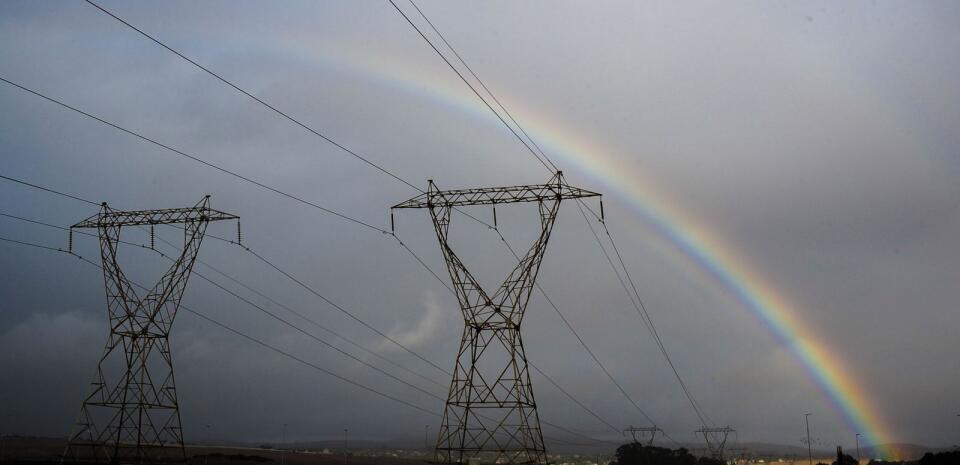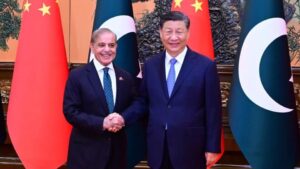The National Energy Regulator of South Africa (Nersa) announced that it has granted Eskom a tariff hike of 12.74 percent for the 2024/25 tax year, compared to the previous 18.65 percent tariff hike in the 2023/24 tax year.
This will immediately be felt by those customers who are directly supplied electricity by Eskom. However, this will only come into effect in July 2024 for many customers in the many municipal areas where the municipality has its own electricity distribution entity.
Many South Africans are furious about this high electricity tariff increase of 12.74 percent, arguing that it is way above, far more than double, the current consumer price index (CPI) of 5.6 percent in February. This takes me back to what Tito Mboweni, a former South African Reserve Bank (SARB) governor and finance minister, said when he complained that the administered prices are unfortunately a major trigger of the country’s inflation rate.
For those not familiar with the terminology of “administered prices”, Google describes them as “the price of a good or service as dictated by a government or central authority, as opposed to buyers and sellers interacting according to supply and demand”.
The philosophy behind the setting of the administered prices is to ensure that the prices or fees charged take into consideration all the country’s fiscal and monetary policy constraints.
Unfortunately in South Africa, the majority of administered prices are usually way above the ordinary inflation rates. We can include here electricity tariffs, water tariffs, residential and business property rates. Can I also include the fuel price adjustments here even though petrol and diesel price increases or decreases are primarily influenced by the foreign exchange rate levels of the rand against the US dollar. They are also based on the levels of the international Brent Crude Oil prices. I have included fuel price adjustments here because the price we pay at the fuel bowsers also includes the general fuel levies.
Lastly, even though they are very wrong and inappropriately included, some people also include the generally significantly increasing school fees charged by both the high-end top public schools and all private schools when talking about administered prices. I state this as a matter of fact that school fees are definitely not part of the administered prices in South Africa.
Now let me come back directly to the 12.47 percent Eskom tariff hike. We need to look at the Eskom situation in a holistic manner. It is very serious, with many contributing factors including many of those who complain the loudest about it. Lawlessness is at the centre of most Eskom problems which has cost them a lot of money, and which they are now trying to recoup from us in the form of tariff hikes.
Let me list the different stakeholders who are contributing to the Eskom mess: The many people who are stealing electricity; the many corrupt Eskom employees who are also doing business with Eskom; the many corrupt Eskom service providers who sabotage Eskom infrastructure to get more work; the many big and small businesses who don’t pay for electricity they receive; the government departments who don’t pay electricity bills, which includes schools; the many municipalities who do receive electricity payments from the consumers but don’t pass such payments to Eskom, but divert such electricity payments to other municipal activities.
What about the many “evergreen contracts” service providers who are said to be charging Eskom highly uncompetitive rates based on contracts that were agreed to long ago under totally different circumstances? I have not forgotten those many criminals who continuously steal Eskom copper cables and other electricity infrastructural equipment.
On April 3, most parts of OR Tambo International Airport were left in complete darkness due to load shedding or a major electricity outage. Many flights could not leave from other airports to OR Tambo because the documentation for the flight plans could not be completed due to this major load shedding or outage. Most retailers and other operators were badly affected, including the rental car operators.
The question is: Why is OR Tambo International Airport not exempt from any form of load shedding? Many businesspeople and ordinary consumers are saying Eskom is charging us higher tariffs for load shedding.
It is said that only 20 percent or 30 percent of Soweto residents pay for their electricity and people who are sent to switch off the electricity of the non-paying electricity users are intimidated and one or two of them have been killed.
Residents also accuse Eskom’s workers of being part of the problem, in that they come to switch off the electricity as part of their Eskom work, and then make deals with the non-paying electricity users that they will switch the electricity back on for a fee. Can you imagine how many millions if not billions of Eskom’s potential revenues are lost this way?
These are part of the reasons why the Eskom mess will continue until there is a political will to stop the national lawlessness that is crippling Eskom’s revenue generation.
The acrimonious parting of the former Group CEO of Eskom, André de Ruyter, with the utility was highly emotionally charged; it seems as if there were no active investigations into the many areas of corruption that he claimed to have uncovered; hence Eskom continues to lose potential revenues due to this inaction.
My conclusion is that there must be a deliberate effort by the government to do a thorough clean-up of Eskom; there must be arrests of all the corrupt culprits whether within or outside Eskom; there must be a political will to switch off all those who steal electricity.
Failure by the government and the security cluster to act decisively on these lawless actions by the various shades of electricity free-loaders is at the core of why Eskom will continue requesting tariff hikes far above the South African consumer price index. This penalises the minority law-abiding electricity users who will continue paying these unsustainably high electricity tariffs while the many electricity thieves are being emboldened in their selfishness that “stealing electricity is a human right”.
Prof Bonke Dumisa is an independent economic analyst







